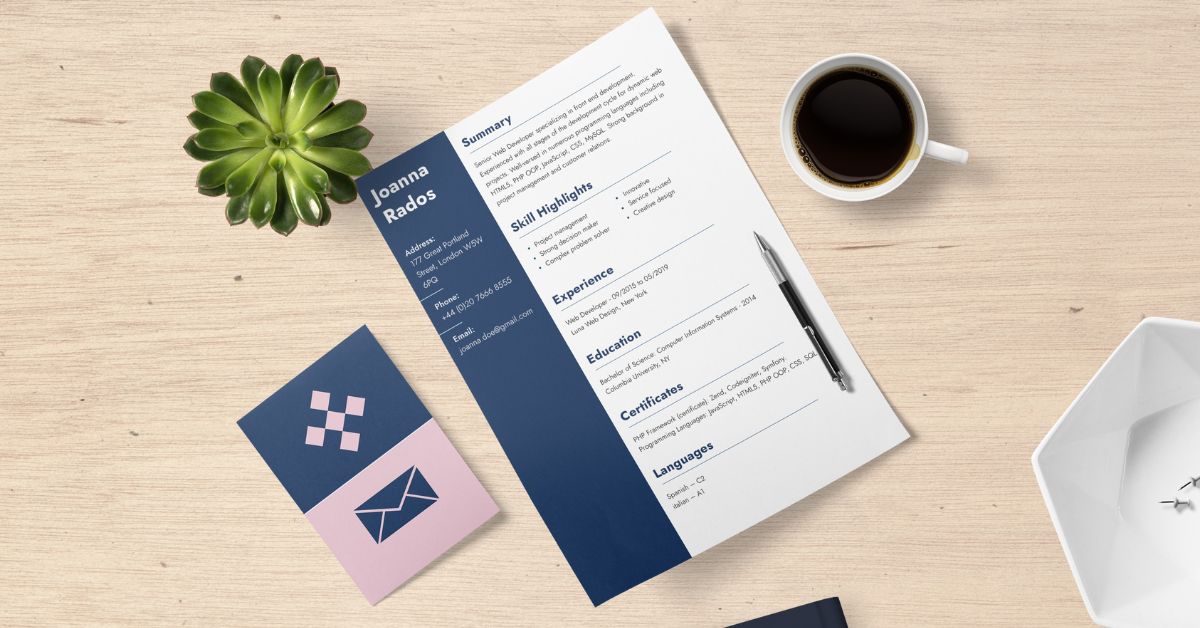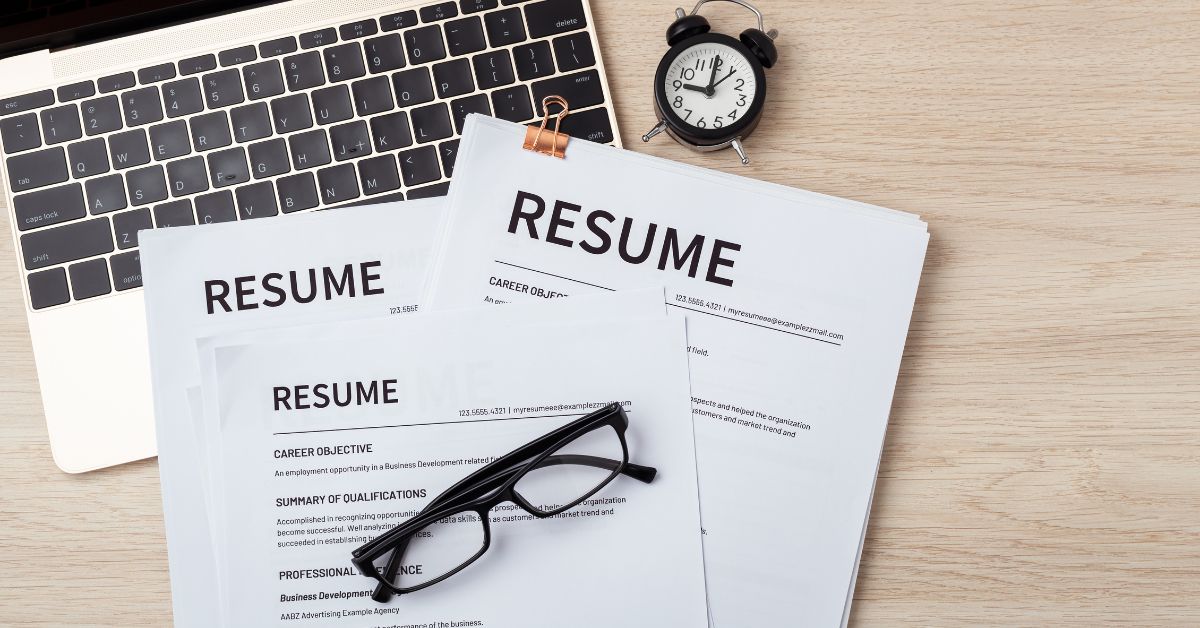When reviewing your resume, hiring managers typically focus on key factors such as your contact information, work experience, and educational background. These are essential elements to keep in mind while drafting your resume. Additionally, depending on the job requirements, you can include extra details at the end of your resume to further strengthen your application.
This brings us to an important question: How should you end a resume? Should you include a closing statement? Knowing how to conclude your resume effectively and understanding what crucial information to include in your closing statement can give you an edge over other candidates.
In this article, we’ll cover everything from outlining ‘how to draft a closing for resume?’, to practical tips to craft a closing statement for your resume that stands out.
The Importance of a Strong Resume Ending
What many deserving candidates fail to understand is the importance of a strong closing statement in a resume. A closing can be the final dealbreaker when it comes to landing your ideal job. When used effectively, a closing statement can leave a lasting impression on hiring managers. By ending your resume with a well-structured summary or additional sections such as “Key Skills,” “Professional Certifications,” or “Notable Achievements,” you can demonstrate your readiness for any role. A closing should highlight your most relevant strengths, aligning them with the job description or requirements.
Additionally, including a call-to-action, such as “References available upon request” or “Looking forward to discussing how I can contribute,” adds extra value and leaves a professional touch. This can give candidates an edge, especially when combined with clean, concise formatting that reflects professionalism and attention to detail.
By strategically compiling all necessary details into the final section, candidates can leverage their closing statements to make a strong, lasting impression.
How to Effectively End Your Resume
Here are some quick tips on how to effectively end your resume:
- Use a Professional Tone, But Be Confident
What leaves a lasting impression on hiring managers is when a resume ends in both a professional and confident manner. You might ask, “Does the tone matter?” It absolutely does. 100% of the time, a formal approach is what proves desirable in the eyes of hiring managers. Therefore, while drafting your ending, maintain a formal tone but also express confidence in your skills and suitability for the position you’re applying for.
A common mistake is simply listing key accomplishments. To leave a lasting impression, it is often more effective if you can relate or link your achievements directly to the role you’re applying for.
For instance, you could add a concise summary that highlights your most relevant strengths:
“Equipped with over 5 years of IT production management experience, I am eager to contribute my expertise in driving operational efficiency and ensuring seamless system support in high-pressure environments.”
Additionally, using a forward-looking statement can subtly exhibit confidence:
“I look forward to the opportunity to further discuss how my skills can benefit your team.”
This conveys a positive approach, showcasing both enthusiasm and job readiness.
- Keep It Concise
The golden rule for drafting a strong closing statement for a resume is to keep it concise. A well-drafted resume closing should focus on your key skills and achievements without unnecessary details. The most effective closing statement often connects your most relevant strengths with the job you’re applying for. One common pitfall is repetition, such as over-explaining information already covered in your resume or restating skills mentioned earlier. It’s essential to avoid these mistakes.
A powerful closing statement can be brief yet impactful. Phrases like “I look forward to the opportunity to contribute my expertise” or “References available upon request” can provide a professional finish. Maintaining a concise closing statement demonstrates how sharp and direct your resume is, which is exactly what hiring managers expect. A succinct resume closing ensures your resume ends on a positive note, reinforcing your suitability for the role without overstating your qualifications.
- Include a Call to Action
One of the easiest ways to grab a hiring manager’s attention is by including a strong call to action in your closing statement for resume. In the hiring process, an effective or well-placed call to action is what encourages hiring managers to take the next step. For instance, phrases like “I would welcome the opportunity to further explore how my experience aligns with your team’s needs” or “I am available for an interview at your convenience” convey eagerness and availability. These calls to action act as windows for keeping the communication open. More often than not, a well-placed call to action in your resume closing increases the likelihood of a follow-up. By demonstrating an employer-centered approach, you are not only showing confidence but also taking extra initiative to secure a position. This reflects positively on your resume and shows your proactive attitude.
- Add a Personal Branding Statement
Apart from a call to action, another valuable addition to your resume is a personal branding statement. This can serve as a powerful closing element, giving your resume a distinctive edge. A well-crafted branding statement allows hiring managers to quickly understand your professional identity and key strengths.
You might wonder, What’s the difference between a career objective and a branding statement? The key distinction lies in their focus. A career objective highlights what you want to achieve, while a branding statement emphasizes the unique value you can bring to the company.
For example:
“A results-driven IT professional with over 10 years of experience in managing complex systems and leading teams to exceed performance goals.”
This concise statement clearly communicates your expertise and demonstrates the value you offer in just a few words.
By incorporating a personal branding statement, you can create a more impactful and memorable closing for resume.
- Highlight Additional Skills or Certifications
If we told you there’s an easy way to subtly demonstrate your commitment to continuous learning, would you believe us? Here’s the trick: include additional skills or certifications in your resume’s closing section. This not only highlights your dedication to professional development but also boosts your credibility.
For example, certifications like ITIL, PMP, or AWS can showcase specialized expertise, while technical skills such as data analysis, cybersecurity, or software proficiency position you as a well-rounded candidate. These details show hiring managers that you exceed the basic qualifications and bring added value to the role.
Moreover, Applicant Tracking Systems (ATS) favor resumes with relevant technical keywords. Including these in your closing section can improve your chances of standing out during automated screenings, giving you a competitive edge in the hiring process.
- Showcasing Key Achievements in Your Closing
One final yet powerful way to enhance your resume closing is by including key achievements. For example, you can highlight how you led a project that resulted in a 20% increase in efficiency or how you implemented cost-saving measures that benefited the company. These achievements provide tangible evidence of your skills and the value you bring, making your resume more compelling and memorable.
How to Tailor Your Closing for Different Career Levels
Now that we’ve covered how to effectively end a resume, it’s time to explore different ways to draft your closing based on your career level.
- Entry-Level Applicants: Focus on Skills and Education
As an entry-level applicant, focus on highlighting transferable skills, educational achievements, and a strong enthusiasm for learning and growth. Since you may have limited work experience, emphasize relevant coursework, internships, or volunteer work. Additionally, include any certifications or hands-on expertise you’ve gained over the years. To make your closing stand out, consider a creative approach, such as proposing a solution to a problem relevant to the job opportunity or mentioning a “Kaizen” (continuous improvement) approach you’ve identified. These strategies can demonstrate your proactive mindset and eagerness to contribute, making closing statement for cv more memorable.
- Mid-Career Professionals: Add a Personal Branding Statement
As a mid-career professional, one of the most effective ways to capture a hiring manager’s attention is by crafting a personal branding statement. As mentioned earlier, this statement should clearly and concisely communicate your value proposition. It should highlight your expertise, core skills, and key career achievements. In simple terms, your personal branding statement should convey what you bring to the table, emphasizing your strengths and how they can address the company’s challenges.
By including a personal branding statement, you not only reinforce your qualifications but also position yourself as a results-oriented professional, showcasing your ability to drive success and make an immediate impact.
- Senior Professionals: Highlight Key Accomplishments
A senior professional can make the most of a resume closing by including key accomplishments that showcase leadership skills, strategic thinking, and the impact made throughout their career. Highlight the value you’ve brought to previous organizations by mentioning significant projects, milestones, and quantifiable achievements.
For example, include measurable results such as cost savings, revenue growth, team performance improvements, sales increases, or successful project implementations. For instance, “Led a cross-functional team to implement a new software system, resulting in a 30% reduction in operational costs.”
As a senior-level professional, it’s crucial to understand the importance of a strong closing statement. Positioning yourself as a visionary leader and highlighting your experience in team management and organizational success will leave a lasting impression on hiring managers.
Should You Include References at the End of Your Resume?
It depends on the job requirements, but in most cases, it is advisable not to include references on your resume. Many consider this practice outdated, as references take up valuable space and are typically provided on a need-to-know basis. Unless the hiring team specifically requests references to be included, it is better to leave them out.
However, you can add a simple statement such as “References available upon request” or “For references, please notify” at the end of your resume. This keeps the option open without occupying unnecessary space.
Final Thoughts for a Polished Resume Ending
Ultimately, the way you end your resume is just as important as its content. The closing statement for resume can make a lasting impression on hiring managers, setting you apart from the competition. Your chances of getting an interview can be improved by strategically incorporating elements such as a call to action, a personal branding statement, relevant skills, and key accomplishments in your closing. Make sure that the resume closing reflects not only your professional identity and your qualifications but also your eagerness to contribute to the organization. If executed correctly, your closing statement for CV can be a powerful tool for sealing the deal and demonstrating your readiness for the position.



